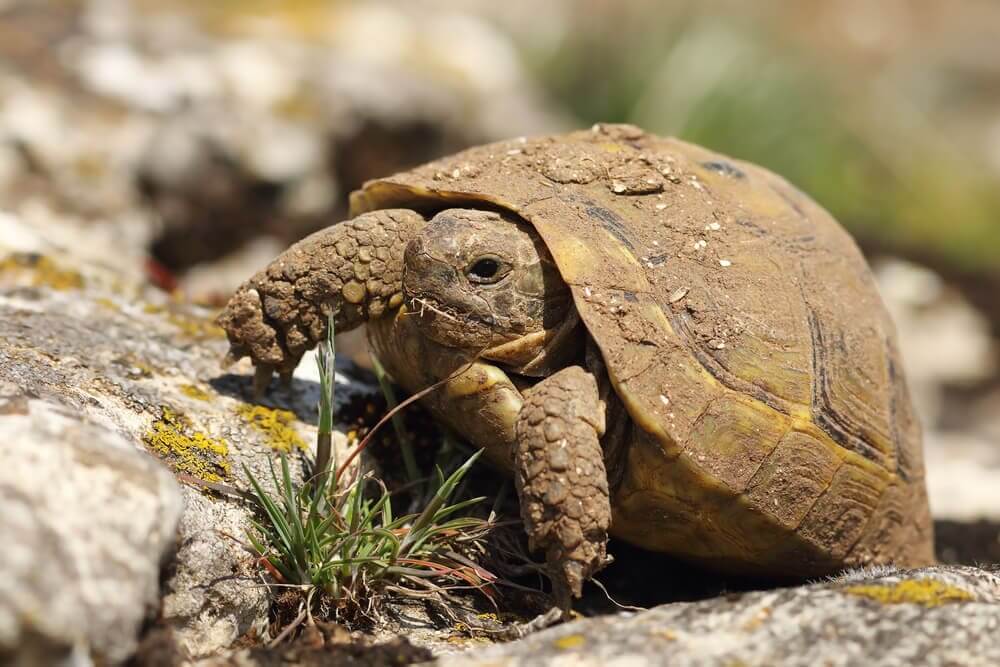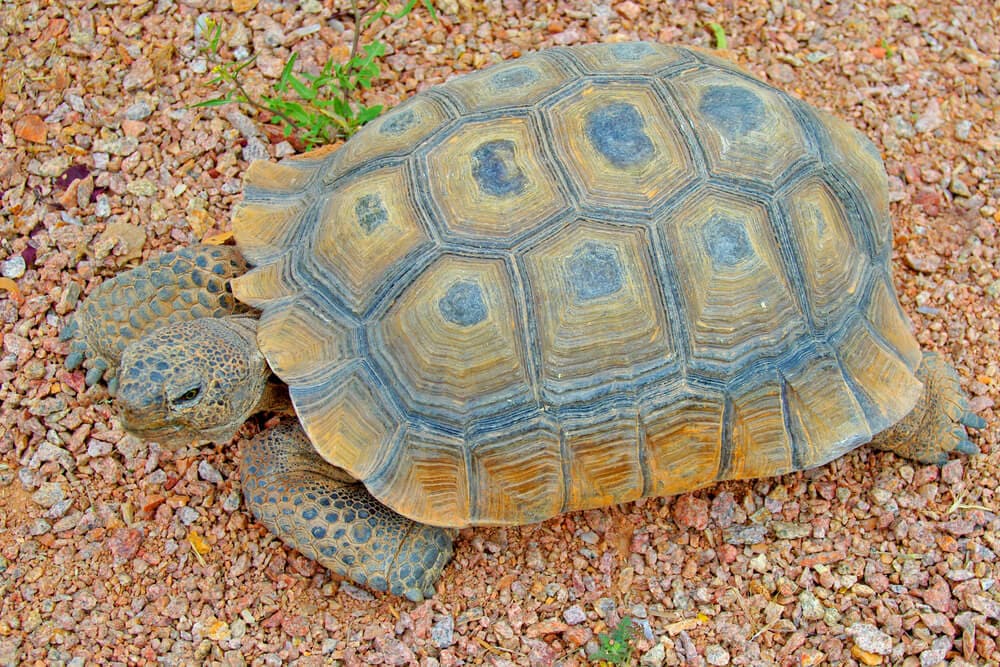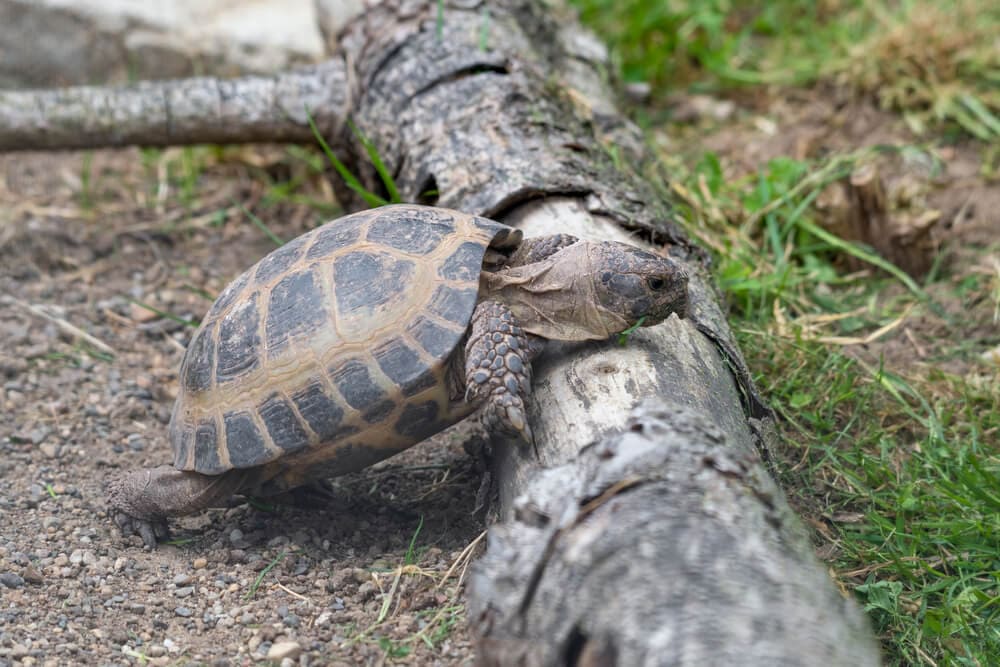Tortoises are intriguing creatures that have fascinated people for centuries. They are known for their slow and steady nature and their longevity. But what do tortoises do in the winter when temperatures drop and food becomes scarce? Do they hibernate like some other animals? In this blog post, we will explore the topic of tortoise hibernation and answer some common questions about this behavior. Do Tortoises Hibernate?
Yes, tortoises do hibernate, but not all species of tortoise hibernate in the same way. Some tortoises, like the gopher tortoise, hibernate in their burrows for several months. Others, like the Russian tortoise, may brumate, which is a form of hibernation where they slow down their metabolism but do not sleep for long periods of time.
Species of tortoises that hibernate.
One of the most interesting behaviors of some species of tortoises is hibernation. Hibernation is a state of reduced metabolic activity that allows animals to conserve energy during cold winter months.
Here we will explore the different species of tortoises that hibernate and how they prepare for this period of dormancy.
-
Gopher Tortoise
The Gopher Tortoise is a species that is native to the southeastern United States. These tortoises can grow up to 15 inches in length and weigh up to 15 pounds. They are known for their deep burrows that they dig to escape the heat of the sun and the cold of winter. During hibernation, they retreat to their burrows and reduce their metabolic rate to conserve energy.
-
Russian Tortoise
The Russian Tortoise is a small species that is native to Central Asia. They are popular pets due to their small size and docile nature. During hibernation, they will bury themselves in the ground and conserve energy by slowing down their metabolic rate. In captivity, these tortoises need a period of hibernation to maintain their health.
-
Desert Tortoise
The Desert Tortoise is a species that is native to the southwestern United States and Mexico. They are known for their long lifespan, with some individuals living up to 80 years. During hibernation, they will retreat to their burrows and reduce their metabolic rate to conserve energy. They are threatened by habitat loss and disease, making conservation efforts critical to their survival.
-
Hermann’s Tortoise
Hermann’s Tortoise is a species that is native to southern Europe. They are small and can grow up to 10 inches in length. During hibernation, they will retreat to their burrows and reduce their metabolic rate to conserve energy. They are popular pets due to their beautiful patterns and docile nature.
-
Horsfield’s Tortoise
Horsfield’s Tortoise, also known as the Russian Tortoise, is a species that is native to Central Asia. They are small and can grow up to 8 inches in length. During hibernation, they will bury themselves in the ground and reduce their metabolic rate to conserve energy. They are popular pets due to their small size and ease of care.
Why Do Tortoises Hibernate?
Tortoises are well-known for their ability to hibernate, a process where they become inactive and conserve their energy during the winter months. There are a few reasons why tortoises hibernate. One of the main reasons is to conserve energy during the cold winter months when food and water are scarce. By slowing down their metabolism, tortoises are able to live off the stored fat and nutrients in their body until the warmer weather returns. Additionally, hibernation allows tortoises to avoid extreme weather conditions and potential predators. Overall, hibernation is an important survival mechanism for tortoises that allows them to conserve energy and survive the winter months.’
When Do Tortoises Hibernate?
Tortoises are a type of reptile that are known for their slow movements and longevity. They are also unique in that they hibernate during the colder months. The timing of when tortoises hibernate depends on their species and location. Some tortoises may begin to hibernate as early as September, while others may not begin until late December. The duration of their hibernation also varies, with some species hibernating for a few months and others for several months. During hibernation, tortoises slow down their metabolism and do not eat or drink. It is important for tortoise owners to understand the hibernation patterns of their specific species in order to properly care for them.
Do tortoises hibernate in the wild?
Tortoises are known to be cold-blooded animals, and it is a common belief that they hibernate in the wild during the winter season. However, the hibernating behavior of tortoises varies depending on the species and the location they inhabit.

Some species, such as the desert tortoise, do not hibernate at all, while others, such as the European tortoise, undergo a period of inactivity during the colder months. In general, tortoises that live in colder regions or higher altitudes are more likely to hibernate in the wild. During hibernation, tortoises enter a state of reduced metabolism, which allows them to conserve energy and survive the harsh conditions of winter.
How Do Tortoises Prepare for Hibernation?
Before going into hibernation, tortoises will start to reduce their food intake and become less active. They may also start to burrow deeper into the ground to find a suitable place to hibernate. In the wild, tortoises will often hibernate in underground burrows or dens, while pet tortoises may hibernate in a box or container with suitable bedding material.
What Happens During Tortoise Hibernation?
During hibernation, tortoises will slow down their metabolism and become less active. They may sleep for extended periods of time, only waking up occasionally to move around or drink water. Their heart rate and breathing will also slow down, helping to conserve energy.
How Long Do Tortoises Hibernate For?
The length of time that tortoises hibernate varies depending on the species and location. Some tortoises may hibernate for only a few weeks, while others may hibernate for several months. In general, tortoises will hibernate until temperatures start to warm up in the spring and food and water become more readily available.
Do tortoises hibernate underground?
Tortoises are known for their ability to hibernate, but the question is, do they hibernate underground? The answer is yes, most tortoise species will hibernate underground during the winter months. They will dig a burrow and then enter into a state of dormancy where their metabolism slows down significantly.

This allows them to conserve energy and survive during the colder months when food is scarce. It’s important for pet tortoise owners to provide a suitable environment for hibernation, as improper conditions can lead to health complications or even death.
What are the risks of tortoise hibernation?
Although hibernation is a natural process for tortoises, it does come with some risks. One of the main risks is that tortoises may not have enough body fat to sustain them throughout the entire hibernation period. If the tortoise runs out of energy, it may not be able to wake up from hibernation and could die. Another risk is that the tortoise may not have found a suitable hibernation site and could be exposed to the cold, which could also lead to death.
FAQs.
Q: Is it necessary for pet tortoises to hibernate?
Ans: The need for hibernation in pet tortoises can vary depending on the species and the environment they are kept in. Some pet tortoises, particularly those from warmer climates, may not require hibernation. It is crucial to research the specific needs of your tortoise species and consult with a reptile veterinarian for guidance on hibernation for pet tortoises.
Q: How can I ensure a safe hibernation for my pet tortoise?
Ans: If hibernation is necessary for your pet tortoise, it is important to create a suitable hibernation environment. This includes providing a proper hibernation box or container with enough substrate for burrowing, maintaining appropriate temperature and humidity levels, and monitoring your tortoise’s health throughout the hibernation period. Consulting with a reptile veterinarian experienced in tortoise care is recommended to ensure a safe hibernation process.
Q: Can tortoises wake up from hibernation?
Ans: Yes, tortoises can wake up from hibernation. However, the process of waking up should occur naturally as temperatures rise in spring or early summer. If a tortoise wakes up too early due to improper conditions or disturbances, it can disrupt its hibernation cycle and be detrimental to its health.
Conclusion.
In conclusion, tortoises do hibernate, but not all species of tortoises hibernate. Hibernation is a natural process that allows tortoises to survive harsh winter conditions when food is scarce. However, if you have a pet tortoise, it’s important to consult with a veterinarian to ensure that your tortoise is healthy and safe during the winter months.

